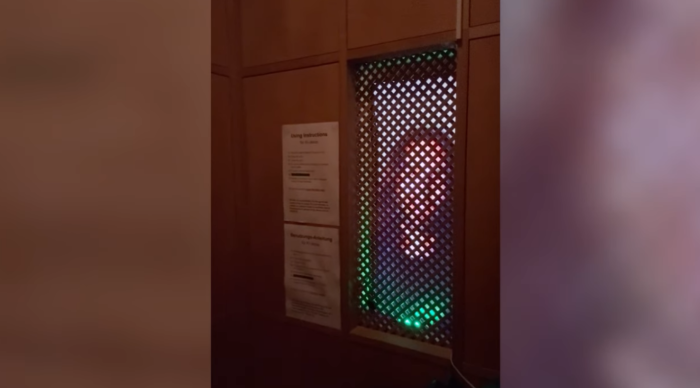Swiss art exhibit offers AI Jesus confessional 'without confession'

The oldest Catholic church in one Swiss city is offering parishioners a chance to receive a blessing from a virtual representation of the Messiah.
St. Peter’s Chapel in Lucerne, Switzerland, is set to wrap up a groundbreaking "experimental art installation" titled “Deus in Machina,” or “God in the machine,” a play on the Latin phrase “Deux ex machina.” The installation features an artificial intelligence (AI) program designed to simulate the image and likeness of Christ Jesus.
Developed by Philipp Haslbauer and Aljosa Smolic from the Immersive Realities Center at Hochschule Luzern, alongside Marco Schmid, a resident theologian at the parish, the installation was first introduced in August and culminates in a public presentation and discussion of its findings on Nov. 27.
According to the installation’s description, visitors “share their thoughts and questions in a confessional with a heavenly hologram, where words are intended for only four ears — but without confession.”
Developed by theologians and computer scientists, the AI is trained in New Testament theology and responds to questions in 100 languages, according to developers. Widely reported as a hologram, the Jesus avatar itself actually appears on a curved monitor behind the confessional screen, Catholic News Agency (CNA) reported.
Trained on sacred scripture and theological texts from across the internet, the AI responds with biblical teachings and spiritual advice. However, the potential for conflicting interpretations remains, as the program draws from diverse online sources, some of which might not align with Catholic doctrine, according to CNA.
One visitor to the exhibit at St. Peter’s Chapel reported the AI addresses them as "Peace be with you, brother," regardless of gender, and encourages them to share "whatever is troubling your heart today."
While designed to offer a moment of personal reflection, the installation is not intended to replace the sacrament of confession, according to CNA. Rather, the project was “created by researchers at a local technical university in concert with theologians who say they want to raise questions about the use of technology in religious settings and to demonstrate the ability of AI to answer questions about the Bible.”
Unlike the eternal Son of God, AI Jesus chatbots like the one in Lucerne appear to learn new information and update responses over time, according to Joseph L. Kimmel, a scholar of early Christianity and comparative religion at Boston College.
For instance, Kimmel previously said one chatbot model of Jesus “referenced past interactions with users and nuanced his responses accordingly, saying, ‘I have received this question about the Bible's meaning before. … But in light of the question you have just posed, I want to add that …”
Variations of an AI representation of Jesus have already debuted online, including Twitch channel Ask Jesus, an experimental AI-generated livestream that gives viewers the chance to query a chatbot “trained after Jesus and the teachings of the Bible.”
A Buddhist chatbot in Thailand named the “AI Monk” is represented with a human face and discusses Buddhist notions of impermanence and other ideas on his Facebook page.
Another Buddhist chatbot is in development in Japan, where researchers at Kyoto University are programming the AI to quote Buddhist teachings.




























